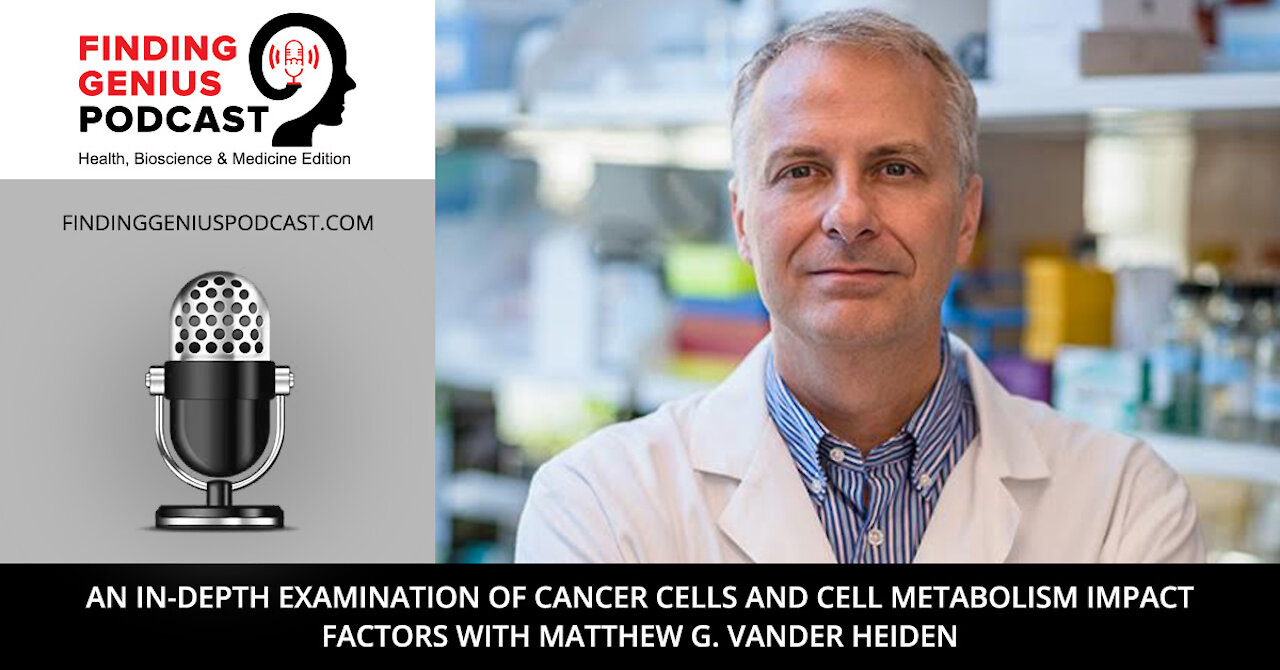Premium Only Content

Cancer Cells and Cell Metabolism Impact Factors with Matthew G. Vander Heiden
How can cancer and cancer cells be understood through the lens of cellular metabolism, and what insights can be gained into various forms of treatment? Many studies suggest that metabolic changes and the environment in which the cells inhabit can significantly impact how they function.
Listen in to learn:
How cancer cells are affected by oxygen availability
Some often-overlooked benefits of Chemotherapy
How cellular metabolism and pathways can affect the development of cancer cells
Oncologist and cancer researcher at the Koch Institute at MIT, Dr. Matthew Vander Heiden, shares his research experience and some surprising cellular processes that can dramatically impact cancer cells.
Dr. Vander Heiden sheds light on the Warburg effect, which describes how cancer cells tend to uptake glucose and ferment it rather than burning it in respiration. The fermentation of glucose rather than respiration is revealed to be how FDG PET scans function by differentiating cancer cells that use more sugar and show up highlighted on the scan. The fermentation process ultimately produces ATP and lactate to fuel the cancer cell.
Alongside development pathways for the cells, oxygen is also a limiting factor on cancer cells, and the lack or surplus will encourage particular pathways to be used. Due to the availability of particular nutrients in different regions of the body, it is also thought that an individual's diet can impact the development of cancer cells. This is explained the clustering and absorption of those nutrients at different concentrations throughout the body.
For more information, visit https://ki.mit.edu.
Episode also available on Apple Podcasts: apple.co/30PvU9C
-
 35:55
35:55
FGP
6 days ago🌳 Branching Out: Oak Diversity, Biodiversity & Conservation With Dr. Andrew Hipp🌍📚
361 -
 2:51
2:51
WMAR
3 years agoWhat are the risk factors of colon cancer - Dr. Lawrence Mills
7 -
 1:56
1:56
PapaZ1
3 years agoA friend with cancer helps rescue a hummingbird !
921 -
 3:29
3:29
KNXV
3 years agoAthlete with cancer completes "10 summit challenge"
10 -
 1:54
1:54
KGTV
3 years agoLocal Nurse with cancer finds hope
25 -
 4:55
4:55
Shredder710
3 years agoturn up your metabolism with carbofix!
22 -
 2:15
2:15
BirdLensEnt
3 years agoNEPHEW WITH CANCER HAS VISITORS
62 -
 10:31
10:31
Go Greg Lewis
3 years ago $0.03 earnedI was Diagnosed with Throat Cancer
241 -
 2:14
2:14
KERO
3 years agoBakersfield teen with cancer has a mission to help others
29 -
 3:49
3:49
KMGH
3 years agoColorado Cancer Coalition: Cervical Cancer Vaccine Interview with Dr. Jeffery James
55